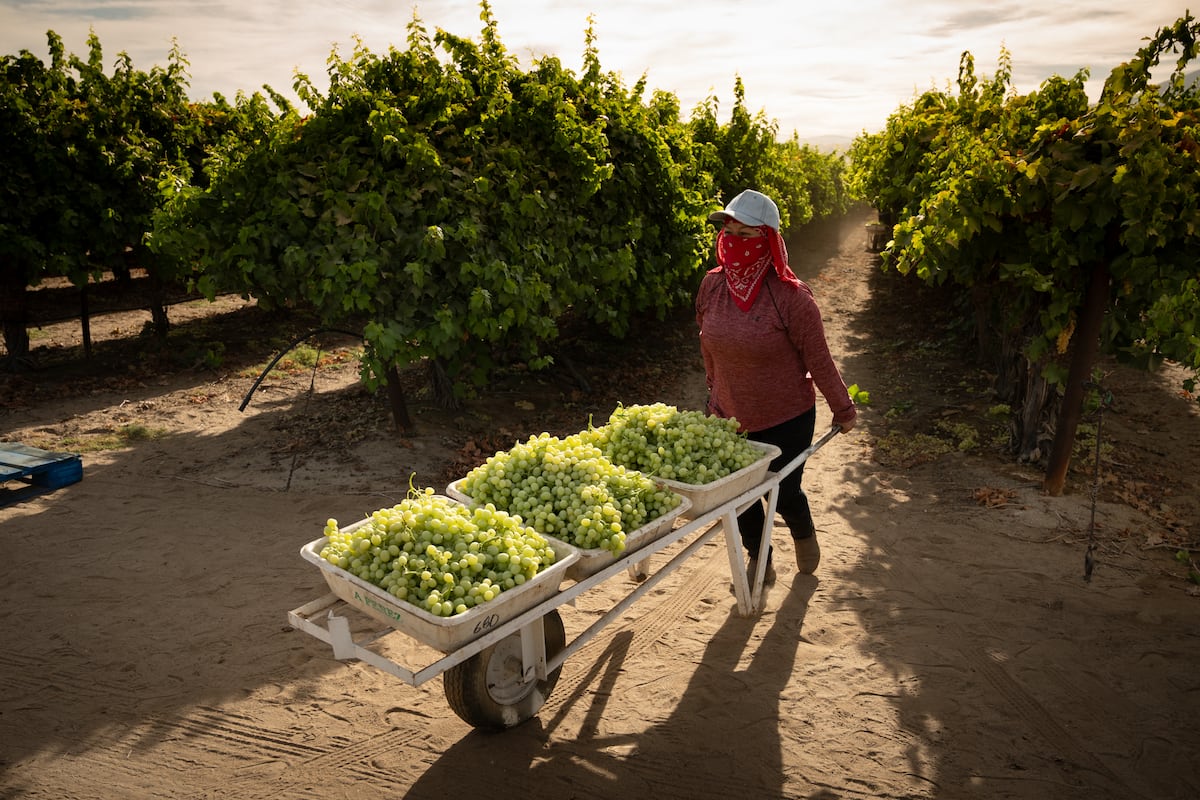
"Maria moves busily among the vines under the August morning sun, as if nothing existed beyond the dust and the grapes. After 23 years working the fields of California, this 45-year-old woman, born in Michoacan in western Mexico but raised just south of the U.S. border, is a one-woman production line. She gathers two large crates of green grapes and carries them to the small station where she sorts and packs them."
"Around her, 60 others do the same, each assigned to a row beneath the trellis. By the end of the day, those migrant hands will have produced countless kilos. In this way, day after day, decade after decade, they have made this land their own. I'm from here, from Mexico, Maria says firmly, without hesitation and without seeing any contradiction."
"In the era of Donald Trump, whose declared mission is to deport every undocumented foreigner, this region embodies the central paradox of his immigration policy. If he were to follow through on his promise and, overnight, the millions of undocumented migrants working in the country were gone, sectors such as construction or caregiving would be hit hard nationwide but agriculture, especially in California, would collapse entirely."
Long-term migrant workers, many from Mexico, are integral to California's Central Valley agriculture, performing daily harvesting and packing tasks that sustain vast production. The region produces a third of U.S. vegetables and two-thirds of fruits and nuts across 40% of the state's land devoted to farming. Political tensions emerge because aggressive immigration enforcement that targets undocumented laborers would cripple agriculture, even as many rural voters supported restrictive policies. The resulting paradox places local farm businesses and the national food supply at risk, exposing dependence on an immigrant workforce embedded in decades of labor and community life.
Read at english.elpais.com
Unable to calculate read time
Collection
[
|
...
]